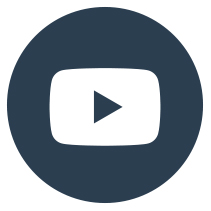|
A "spy" in the belly |
|
To ensure that wounds in the abdominal cavity remain tightly closed after an operation, researchers have developed a patch with sensors. The polymer patch reports dangerous leaks at sutures in the gastrointestinal tract and closes the sites automatically. |
|
A robot aviary |
|
They maintain and repair buildings, observe natural phenomena and transport goods: Drones and robots could play a major role in our lives in the future. With the DroneHub, a special "aviary" is to be created in the NEST on the Empa campus in Dübendorf. |
|
Green gliders |
|
Their task is to monitor the condition of ecosystems, for instance in the forest floor – and crumble to dust when their work is done: Empa researchers have developed these sustainable flying sensors from potato starch and wood waste. |
|
Desired defects |
|
Empa researchers are embarking on an ambitious project: To selectively generate defects in atomically-thin semiconductor layers and to control their quantum properties. Fundamental knowledge for future quantum computers is to be expected. |
|
I am sailing |
|
The SailMAV drone can fly and sail on water due to its foldable wings. Its special design also allows it to record wildlife behavior, as animals do not perceive the drone as a hostile intruder. |
|
In the danger zone |
|
Empa researchers are developing a heat-resistant drone that can analyze the source of danger at close range in the event of a fire. This allows firefighters to optimize the strategy of a high-risk operation before entering the danger zone. |
|
Research accelerator |
|
The researchers of Empa's Surface Science and Coating Technologies laboratory aim to accelerate the development of multifunctional thin films, which could be applied in electronic devices or high-performance optics. |
| A scary (bio-)film |
|
Bacteria have formed a biofilm at the root of a tooth (beige). It causes tooth decay and inflammation. Empa researchers are investigating these successful communities and are developing biomedical materials to keep the pathogens at bay. |
|
NEST Podcast |
| The future of construction |
|
Let there be light |
|
An Empa team has developed a glass brick with good insulation properties thanks to aerogel, which can even be used for load-bearing elements. This makes it possible to build aesthetic, translucent walls that reduce the need for artificial lighting inside the building. |
|
An iridescent 3D ink |
|
Empa researchers developed a cellulose-based ink that allows to 3D print biodegradable sensors and displays and changes color when heated or stretched – without the addition of any pigments. |


















